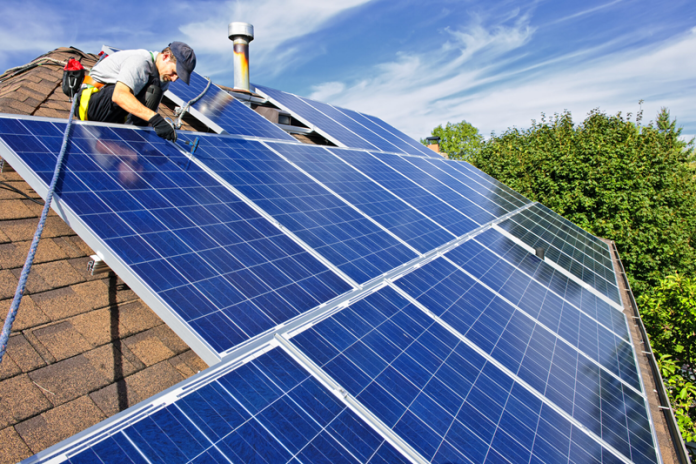As homeowners increasingly prioritize energy efficiency and sustainability, solar panels have become a go-to solution for cutting utility costs and reducing environmental impact. Beyond their eco-friendly appeal, solar panels provide undeniable financial benefits that make them a worthwhile investment for your home. From reduced electricity bills to lucrative tax incentives, let’s explore the many ways solar panels can save you money in both the short and long term.
Lower Monthly Energy Bills
The most immediate and noticeable benefit of solar panels is the reduction in monthly electricity costs. By harnessing sunlight to generate power, you can offset or even eliminate your reliance on traditional energy sources.
For example, in states with abundant sunshine like California, Arizona, or Florida, a properly sized solar panel system can cover nearly all of a home’s energy needs. Even in less sunny regions, advancements in solar technology ensure panels perform efficiently in cloudy or overcast conditions.
Depending on your energy consumption and local utility rates, solar panels can save homeowners anywhere from $500 to over $2,000 annually on electricity bills. Over the typical 25-30-year lifespan of a solar system, these savings can add up to tens of thousands of dollars.
Protection Against Rising Energy Costs
Utility prices are unpredictable and often rise due to inflation, increased demand, or infrastructure updates. By switching to solar energy, you shield yourself from these fluctuations. Locking in a predictable energy cost can provide peace of mind and make household budgeting easier.
Homeowners with solar panels essentially “prepay” for their electricity by generating their own power. This financial stability becomes especially valuable in regions where utility rates spike during peak seasons, such as summer heatwaves or winter storms.
Tax Credits and Incentives
Installing solar panels can be a significant upfront expense, but federal and state incentives can substantially reduce the initial cost. The federal government offers the Investment Tax Credit (ITC), which currently allows homeowners to claim up to 30% of their solar installation costs as a tax deduction. For instance, if your solar system costs $20,000, you could receive a $6,000 credit on your federal taxes.
Many states and municipalities also provide additional benefits, such as rebates, property tax exemptions, and sales tax reductions. These incentives vary by location, so it’s worth researching what’s available in your area to maximize savings.
Increased Home Value
Solar panels not only save you money while you live in your home but also boost its resale value if you decide to sell. According to studies from organizations like Zillow, homes with solar energy systems typically sell for 4% more than comparable properties without solar.
This premium reflects buyers’ growing interest in energy-efficient homes, particularly as utility costs continue to rise. In addition, homes with solar panels often sell faster because potential buyers recognize the long-term savings they can provide.
Reduced Maintenance Costs
Solar panels are surprisingly low-maintenance. Most systems require little more than routine cleaning and occasional inspections to ensure optimal performance. This minimal upkeep helps homeowners avoid unexpected expenses that can often come with other home improvement projects.
Additionally, most solar panel manufacturers offer warranties lasting 20-25 years, covering repairs or replacements if issues arise. Inverters, which convert solar energy into usable electricity, may have shorter warranties but are also relatively inexpensive to replace.
Net Metering: Earning Money for Your Extra Energy
One of the most attractive financial perks of solar panels is the ability to earn credits through net metering programs. In states where net metering is available, excess energy generated by your solar panels is sent back to the grid. Your utility provider compensates you for this surplus, often as a credit on your electricity bill.
During months when your panels produce more energy than your household uses—such as sunny summer days—you can build up credits to offset costs during less productive months. Over time, this can result in even greater savings or effectively zero electricity costs.
Long-Term Financial Returns
While the upfront cost of a solar panel system can be substantial, the long-term financial returns make it a smart investment. The average payback period for solar panels ranges from 6 to 10 years, depending on system size, installation costs, and local energy prices.
After this period, homeowners essentially enjoy “free” electricity for the remainder of the system’s life. Given that most panels last 25 years or more, this means two decades of significant savings. For many homeowners, the ROI on solar panels rivals or exceeds traditional investment options like stocks or real estate.
Financing Options to Fit Any Budget
For those concerned about the upfront cost, numerous financing options make solar panels accessible to a wide range of homeowners. Solar loans allow you to spread payments over time, often with monthly costs that are lower than your existing utility bill.
Leasing and power purchase agreements (PPAs) are also popular choices. While these options may not provide the same long-term savings as purchasing a system outright, they still allow homeowners to benefit from reduced energy bills without the need for significant upfront investment.
A Long Term Investment
Investing in solar panels is not just a move toward sustainability—it’s a powerful way to improve your financial health. By lowering energy bills, shielding yourself from rising utility costs, and taking advantage of government incentives, solar panels offer immediate and lasting monetary benefits.
With the added perks of increased home value, low maintenance requirements, and the potential to earn money through net metering, solar panels represent a bright financial future for any homeowner. Whether you’re looking for savings today or a long-term investment in your property, the sun is truly a resource worth tapping into.















